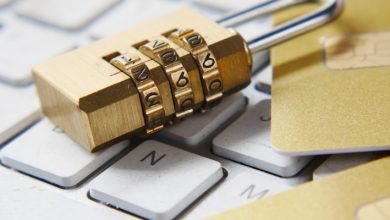Understanding the Risks of Storing Crypto on Exchanges

- The importance of self-custody in the world of cryptocurrency
- Common security vulnerabilities of cryptocurrency exchanges
- How hackers target centralized exchanges to steal funds
- Regulatory risks associated with leaving your crypto on exchanges
- Best practices for securely storing your cryptocurrency
- Why decentralized exchanges offer a more secure alternative
The importance of self-custody in the world of cryptocurrency
Self-custody is a crucial aspect to consider in the realm of cryptocurrency. When you store your digital assets on an exchange, you are essentially relinquishing control of your funds to a third party. This poses various risks, such as hacking, theft, or even the exchange going bankrupt.
By opting for self-custody, you take control of your private keys and secure your crypto in a personal wallet. This way, you eliminate the dependency on exchanges and reduce the chances of falling victim to security breaches. Self-custody provides you with the autonomy to manage your assets and ensures that you are the sole custodian of your funds.
Moreover, self-custody aligns with the core principles of decentralization that underpin the philosophy of cryptocurrencies. It empowers individuals to be in charge of their financial sovereignty and reinforces the concept of peer-to-peer transactions without the need for intermediaries.
Common security vulnerabilities of cryptocurrency exchanges
Cryptocurrency exchanges are susceptible to various security vulnerabilities that can compromise the safety of users’ funds. Some common vulnerabilities include:
– **Phishing Attacks:** Cybercriminals often use phishing emails or websites to trick users into revealing their login credentials or personal information. This can lead to unauthorized access to user accounts on the exchange.
– **Malware:** Malicious software can infect users’ devices and steal sensitive information such as private keys or passwords. This information can then be used to access the user’s account on the exchange.
– **Insider Threats:** Employees of cryptocurrency exchanges may have access to sensitive information and could potentially misuse this access for personal gain. This could include stealing funds from user accounts or manipulating trading activities.
– **Weak Passwords:** Users who use weak or easily guessable passwords are at risk of having their accounts compromised. This can lead to unauthorized transactions or the theft of funds from the exchange.
– **DDoS Attacks:** Distributed Denial of Service (DDoS) attacks can overwhelm an exchange’s servers, causing them to become unresponsive. During this time, users may be unable to access their accounts or make transactions.
It is important for users to be aware of these vulnerabilities and take steps to protect their funds. This includes using strong, unique passwords, enabling two-factor authentication, and being cautious of phishing attempts. By staying vigilant and implementing best security practices, users can help mitigate the risks associated with storing cryptocurrency on exchanges.
How hackers target centralized exchanges to steal funds
Centralized exchanges are often targeted by hackers due to the large amounts of cryptocurrency funds stored on their platforms. Hackers use various methods to steal funds from these exchanges, taking advantage of vulnerabilities in their security systems.
One common technique used by hackers is phishing attacks, where they create fake websites or emails that mimic legitimate exchanges to trick users into providing their login credentials. Once hackers have access to these credentials, they can easily access users’ accounts and withdraw their funds.
Another method hackers use is malware, which is malicious software that can infect users’ computers or mobile devices. This malware can steal sensitive information such as private keys or login credentials, allowing hackers to access users’ exchange accounts and steal their funds.
Additionally, hackers may exploit vulnerabilities in the exchange’s code or infrastructure to gain unauthorized access to users’ funds. They may use techniques such as SQL injection or cross-site scripting to manipulate the exchange’s systems and steal funds from users’ accounts.
It is essential for users to be aware of these risks and take precautions to protect their funds when storing cryptocurrency on centralized exchanges. By using strong passwords, enabling two-factor authentication, and being cautious of phishing attempts, users can reduce the likelihood of falling victim to hackers and losing their funds.
Regulatory risks associated with leaving your crypto on exchanges
Storing your cryptocurrency on exchanges exposes you to regulatory risks that could impact your investments. Exchanges are subject to regulations that vary by country, and changes in these regulations can affect how they operate. For example, if a regulatory authority imposes restrictions on crypto trading or requires exchanges to comply with new rules, it could lead to disruptions in the services provided by the exchange. This could result in delays in accessing your funds or even the loss of your assets if the exchange is shut down due to non-compliance.
Furthermore, regulatory risks can also arise from the way exchanges handle customer data and funds. In some cases, exchanges may not have robust security measures in place to protect against hacks or fraud. If an exchange is compromised, your personal information and crypto assets could be at risk. Additionally, if an exchange is found to be operating illegally or engaging in fraudulent activities, regulatory authorities may freeze or seize the assets held on the platform.
To mitigate regulatory risks associated with leaving your cryptocurrency on exchanges, consider using hardware wallets or cold storage solutions to store your assets securely. By keeping your crypto in a wallet that you control, you can reduce the likelihood of falling victim to regulatory actions taken against exchanges. Remember that the cryptocurrency market is still evolving, and regulatory changes are a constant threat. Stay informed about the regulations that apply to exchanges in your jurisdiction and take proactive steps to protect your investments.
Best practices for securely storing your cryptocurrency
When it comes to securely storing your cryptocurrency, there are several best practices you should follow to ensure the safety of your assets. Here are some key tips to keep in mind:
- Utilize hardware wallets: Hardware wallets are considered one of the most secure ways to store your cryptocurrency. These physical devices store your private keys offline, making them less susceptible to hacks or online attacks.
- Use multi-signature wallets: Multi-signature wallets require multiple private keys to authorize a transaction, adding an extra layer of security. This can help protect your funds in case one key is compromised.
- Enable two-factor authentication: Two-factor authentication adds an extra step to the login process, typically requiring a code sent to your phone or email. This can help prevent unauthorized access to your account.
- Keep your private keys offline: Keeping your private keys offline, also known as cold storage, can help protect them from online threats. Consider storing them on a USB drive or a piece of paper kept in a secure location.
- Regularly update your software: Keeping your wallet software up to date is crucial for security. Developers often release patches to fix vulnerabilities, so make sure to install updates promptly.
By following these best practices, you can help ensure that your cryptocurrency assets are stored securely and protected from potential threats. Remember to always prioritize security when it comes to managing your crypto holdings.
Why decentralized exchanges offer a more secure alternative
Decentralized exchanges offer a more secure alternative for trading cryptocurrencies compared to centralized exchanges. One of the main reasons for this is that decentralized exchanges do not hold users’ funds. Instead, trades occur directly between users through smart contracts. This means that there is no central point of failure for hackers to target, reducing the risk of large-scale security breaches.
Furthermore, decentralized exchanges do not require users to create accounts or go through a KYC (Know Your Customer) process. This anonymity adds an extra layer of security as users do not have to worry about their personal information being compromised in a data breach. Additionally, decentralized exchanges are not regulated by any government or authority, which means that they are less susceptible to regulatory changes that could impact the security of users’ funds.
Another advantage of decentralized exchanges is that they do not have a single point of control. This means that no single entity has the power to manipulate the market or make decisions that could negatively impact users. Instead, decisions are made collectively by the community of users, making decentralized exchanges more transparent and resistant to manipulation.
In conclusion, decentralized exchanges offer a more secure alternative for trading cryptocurrencies due to their lack of a central point of failure, anonymity of users, and lack of a single point of control. By using decentralized exchanges, users can reduce the risk of security breaches and have more control over their funds.



